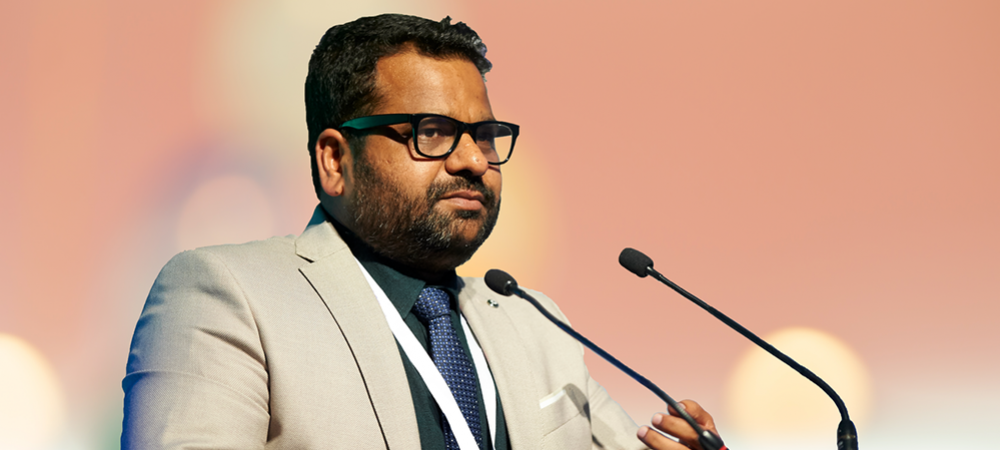On the lighter side of things, we ask the industry-experts what makes them tick. Here we talk to Gautam Kumar, COO and Co-Founder, FarEye.
What would you describe as your most memorable achievement?
After completing graduation, we made a product called Suraksha. Suraksha was meant to make the usage of gas cylinders more secure. In case of a leakage, it would automatically trigger alerts, intimating people around about the situation. This product got significant recognition from the government and investors. I consider this as a memorable achievement as the solution had a direct impact on saving the lives of people.
What first made you think of a career in technology?
Since childhood, I had a natural inclination towards experimenting with technologies. It started with batteries and switches back then and evolved into a love for wider technologies in college. This interest also led me to be named as the social innovator of the year By Massachusetts Institute of Technology in 2011. After graduation, a career in technology was a natural progression for me. It always fascinated me how the most complex everyday problems could be resolved using technology.
What style of management philosophy do you employ with your current position?
I believe in flat hierarchy. And it’s very important to treat everyone, all my colleagues, equally. By doing so, one can easily motivate people to speak their heart out and come up with new and innovative ideas. Traditional employee-employer relationships have inherent limitations with regards to encouraging out-of-the-box thinking.
Also, from a business perspective, a flat hierarchy removes excess layers of management and improves the co-ordination and speed of communication between employees. Fewer levels of management encourage an easier decision-making process among employees. And more importantly, it saves a lot of productive time.
What do you think is the current hot technology talking point?
I am extremely excited about Machine Learning (ML) and predictive intelligence. By analysing historical data ML enabled platforms can easily predict customer buying trends, enabling businesses to be better prepared. These platforms can self-correct addresses over some time and also learn customer delivery preferences, predict delay in orders and intimate customers in real-time thereby boosting customer engagement and loyalty.
How do you deal with stress and unwind outside the office?
It has to be sports. I feel following sports help trigger a sense of rejuvenation in me that automatically brings my stress levels down. But I do feel that to a certain extent a bit of stress can be helpful. It helps to perform better, think fast and be a bit more pragmatic about life in general.
If you could go back and change one career decision what would it be?
Every career decision I made has given me valuable life-lessons. This will always help me make better decisions in the future.
What do you currently identify as the major areas of investment in your industry?
With regards to potential, Blockchain and predictive analytics are some of the major technologies that will see significant amounts of investments in the coming years.
What are the region-specific challenges when implementing new technologies in the Middle East?
A major challenge with regards to technology adoption in the Middle East is legacy infrastructure. In many cases, we have seen that there is not enough interoperability between IT architectures. It’s difficult to integrate new technologies in such scenarios. Hence, change is not going to come over-night. It will be a gradual process. And once business in the Middle East gradually realises the value of a modern IT infrastructure, I am sure they will start investing in cutting-edge technologies.
What changes to your job role have you seen in the last year and how do you see these developing in the next 12 months?
We started with less than 10 employees in our team. Now we have crossed 200. Therefore, regarding managing growth and people, ensuring scale and nurturing talent a lot has changed. And in the technology space what’s ‘fantastic’ today might become ‘average’ a few years down the line.
So, with regards to change in the coming 12 months, I am constantly thinking about how to find new ways to innovate faster and simultaneously build an A-class team.
What advice would you offer somebody aspiring to obtain a C-level position in your industry?
I have always put my trust in believing that talent wins games but teamwork can win championships. It is paramount for the leader to induce entrepreneurial characteristics in his or her employees. Encouragement is the answer to a lot of questions, and when it comes to our work, I believe in keeping customers at the core of what we do.
We believe in making entrepreneurs and not just employees. It’s not just the skill set that matters but also thought process and attitude.
A good leader should inspire his/her team for doing something extraordinary. I believe that the best leaders are passionate about developing the emerging leaders around them, they constantly work to improve their emotional intelligence and know that a strong team culture is a foundation for accomplishing the mission. They are in a perpetual state of preparation and embrace the inevitable changes their businesses will face.
It is important to have faith in their beliefs, if as a leader you don’t have solid faith in your ideas, you can’t expect others to believe in you. Along with having great communication skills, one needs to listen to others, setting examples and should put his or her best foot forward in not giving up easily.
At this level, one needs to be a strategic planner, forward-thinking and formulate techniques for his team to be able to achieve their and an organisation’s goals.


